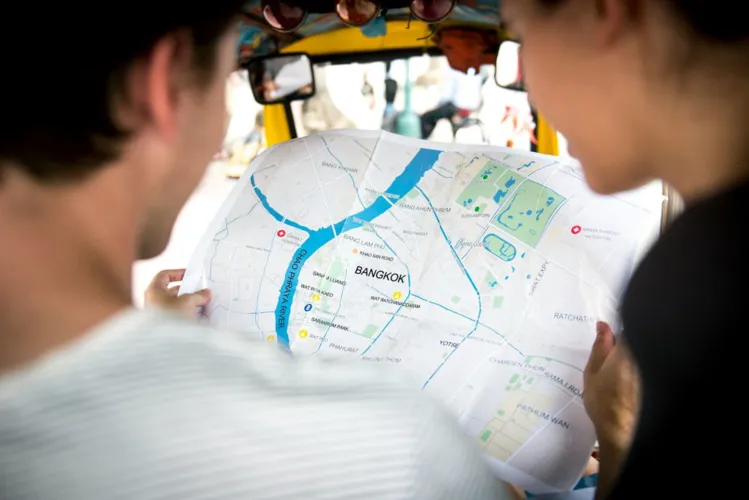Thailand's Medical Tourism 2.0: A Strategic Evolution
Thailand's medical tourism sector is undergoing a profound transformation, ushering in what can be characterized as its "2.0" phase. This evolution is defined by a comprehensive, long-term vision that extends far beyond the traditional focus on cost-effective treatments.
Defining the Vision: The 2025-2034 Comprehensive Strategy
At the core of this strategic evolution is Thailand's comprehensive 10-year strategy (2025-2034), explicitly launched with the objective of becoming a global center for wellness and medical services. This formalized, decade-long plan signifies a deep national commitment to the health economy, aiming to bolster its strength, enhance international competitiveness, and promote regional development through health tourism.
The strategic importance of this initiative is underscored by its governance structure: a high-level Wellness and Medical Hub Board, often chaired by the prime minister or a designated deputy prime minister, ensures cross-ministerial coordination and national dedication.
This long-term, formalized plan indicates a deliberate strategic choice to move beyond short-term gains and elevate Thailand's competitive advantage. The previous phase of medical tourism was largely driven by offering affordable, quality treatments. The current strategy, however, broadens the scope significantly, integrating "wellness," leveraging "soft power," fostering an "academic hub," developing a "product hub," and hosting "health conventions."
This represents a strategic pivot from merely attracting patients for cost-effective treatments to building a holistic, high-value, and diversified health ecosystem. This shift aims to capture greater market share, attract higher-value segments, and ensure long-term sustainable growth.
The government's recognition of the health economy's substantial potential, evidenced by the over $12.3 billion generated in 2023, which marked a 119.5% year-on-year increase, served as a catalyst for this more ambitious, multi-faceted strategy.
Pillars of Growth: Wellness, Medical Services, Academia, Products, and Conventions
The Medical Hub policy outlines five primary objectives for the 2025-2034 period, demonstrating a multi-pronged approach to sector development :
- Wellness Hub: This pillar focuses on promoting overall health and wellness, a natural extension of Thailand's rich biodiversity, traditional knowledge, and renowned hospitality. It integrates these strengths with modern therapeutic practices, aiming to expand the existing network of over 2,180 certified wellness centers across the country.
- Medical Service Hub: This objective is dedicated to advancing the quality and accessibility of medical treatment services. Under the Medical Service Hub Sub-Committee, key areas of promotion include health and aesthetic medicine, in-vitro fertilization (IVF), gender-affirming care, and dental services for international patients.
- Academic Hub: This pillar supports academic research and training within the health sector, with a particular emphasis on skill-building for professionals in wellness-related fields.
- Product Hub: This objective concentrates on driving innovation in pharmaceuticals and other health products. This implicitly addresses the nation's historical reliance on imports within the pharmaceutical industry, aiming for greater self-sufficiency.
- Health Convention Hub: This pillar positions Thailand as a premier venue for hosting health-related conferences and exhibitions, further enhancing its international standing in the healthcare domain.
The explicit definition of these five distinct "hubs" signifies a broad, holistic approach to the health sector, not solely focused on medical procedures. By expanding into academia, product development, and health conventions, Thailand is aiming to create a self-sustaining, innovative health ecosystem rather than merely being a service provider.
This diversification mitigates risks associated with over-reliance on a single revenue stream, such as medical procedures, and enhances long-term competitiveness by fostering a complete value chain within the health sector.
This strategy positions Thailand not just as a destination for receiving healthcare, but as a contributor to global health knowledge, innovation, and industry development, thereby elevating its global standing in the healthcare domain.
Economic Impact and Soft Power Integration
The economic vitality of Thailand's health and wellness tourism sector is undeniable. It generated over $12.3 billion in 2023, marking a significant 119.5% year-on-year increase. Projections indicate that the market is set to reach an impressive $110.1 billion by 2034, demonstrating a robust compound annual growth rate (CAGR) of 13%.
Beyond these substantial financial figures, this initiative is explicitly integrated into the Thai government's broader "soft power strategy." This approach leverages health tourism as a powerful driver of economic growth and international visibility. A prime example is the new global campaign, 'Thailand: Equality & Excellence in Health', which strategically links Thailand's medical expertise with its recent marriage equality law to attract health tourists and the LGBTQ+ community worldwide.
This sophisticated integration demonstrates how social progress can be leveraged as a unique selling proposition in the global market, showcasing a modern, inclusive image that resonates with specific, high-value demographics. This transforms health tourism into a powerful instrument for national branding and diplomatic outreach.
The strategic plan also includes the creation of job opportunities and enhanced skill-building in wellness-related professions, contributing to human capital development. The economic success and growing international recognition of Thailand's health and wellness tourism sector reinforce the government's commitment to further utilizing it as a soft power tool, creating a positive feedback loop where economic gains enable broader strategic objectives, and vice versa.
Integrated Care Hubs: Elevating the Patient Experience in Phuket and Bangkok
Thailand's "Medical Tourism 2.0" strategy is significantly enhancing the patient experience through the development of integrated care hubs in its two major medical tourism destinations: Phuket and Bangkok. These hubs combine clinical excellence with comprehensive support services, tailored to their distinct environments.
Phuket: Blending Clinical Excellence with Holistic Recovery
Phuket has cemented its reputation as one of Southeast Asia's most reliable and well-equipped destinations for both emergency treatment and elective procedures. Its medical infrastructure is characterized by internationally trained doctors, state-of-the-art facilities, and multilingual staff, ensuring a high standard of care. The island offers a wide spectrum of medical services, ranging from general practitioners and dentists to highly specialized fields such as cardiology, orthopaedics, and paediatrics.
Major hospitals, including Bangkok Hospital Phuket, Bangkok Hospital Siriroj (formerly Phuket International Hospital), and Dibuk Hospital, operate 24/7 emergency departments and often feature dedicated international visitor desks to streamline the patient journey. Many of these facilities hold JCI accreditation, signifying adherence to rigorous international standards.
A key differentiator for Phuket is its unique capacity to integrate clinical treatment with natural recovery. Patients can recuperate in serene, picturesque, and tourist-friendly environments, such as beachside resorts or nature-rich locations. This blend of medical care and a relaxing vacation atmosphere promotes relaxation and reduces stress, which in turn can accelerate the healing process and contribute to a more pleasant overall recovery experience. This is not merely a pleasant side benefit; it is an integrated and deliberate component of Phuket's medical tourism offering. By explicitly linking high-quality medical procedures with a "retreat" for recovery, Thailand creates a unique value proposition that distinguishes it from other medical hubs globally.
This approach transforms a potentially stressful medical journey into a more holistic, rejuvenating, and even enjoyable experience, particularly appealing for elective procedures. It also encourages longer stays, thereby increasing overall tourism revenue beyond just the medical procedure itself. For patients, the psychological benefits of healing in a serene environment, coupled with the convenience of integrated services, significantly enhance the perceived value and attractiveness of Phuket as a medical destination.
Comprehensive support services extend beyond medical treatment to include accommodations, transportation, language interpretation, and tailored travel packages, ensuring a seamless experience for international visitors.
Bangkok: Premier Medical Facilities and Comprehensive Patient Support
Bangkok, exemplified by leading institutions like Bumrungrad International Hospital, stands as a premier medical tourism destination. It serves a vast international clientele, with over 600,000 international guests from 190 countries annually out of 1.1 million total patients. Hospitals in Bangkok are staffed by highly qualified medical professionals, many of whom are board-certified from the USA, UK, Australia, and other developed countries. These facilities offer a wide array of specialized services under one roof, encompassing general health check-ups, cosmetic surgery, cardiology, oncology, orthopedics, fertility treatments, and neurology.
A crucial element in enhancing the patient experience is the extensive multilingual staff, with over 200 professional interpreters covering more than 20 languages. Dedicated International Patient Services Centers assist with every aspect of the patient journey, from medical appointments to visa and travel arrangements.
The focus is heavily on comfort and luxury, with hospitals providing a five-star hotel-like ambiance, VIP suites, international cuisine, and personal concierge services, ensuring a seamless and stress-free experience for foreign patients. This indicates a deliberate strategic choice to move beyond basic medical tourism and attract patients who prioritize comfort, convenience, and a seamless, premium experience alongside top-tier medical quality.
This "luxury hospital-hotel" model allows these facilities to command higher prices for their services, significantly contributing to the "high value per unit" aspect of medical tourism. It transforms the medical journey into a comprehensive, stress-free "medical vacation" for affluent patients, differentiating Bangkok from other hubs that might focus more on volume or basic affordability.
This strategy is crucial for Thailand's "2.0" vision of becoming a high-value medical hub. Additional comprehensive services include accommodation arrangements near the hospital, airport pick-up services, local transportation, visa assistance, detailed medical consultation planning, transparent cost estimates, telemedicine services for remote consultations, air ambulance services for emergencies, and simplified international fund transfers. Bumrungrad also holds JCI accreditation, ensuring high standards of quality and patient safety.
Key Comparison: Integrated Care Hubs in Phuket and Bangkok
The distinct approaches of Phuket and Bangkok highlight Thailand's diversified strategy to cater to different patient needs and preferences.
Feature | Phuket | Bangkok |
Primary Focus | Holistic Recovery & Elective Procedures (leveraging natural environment) | Comprehensive & Luxury Medical Services (urban convenience & premium amenities) |
Key Differentiator | Natural Environment for Recovery & Wellness Integration | Premium Amenities & Extensive International Patient Support |
Representative Hospitals | Bangkok Hospital Phuket, Bangkok Hospital Siriroj, Dibuk Hospital | Bumrungrad International Hospital |
Patient Support Services | Multilingual staff, 24/7 emergency, international visitor desks, walk-in clinics, accessible pharmacies, airport transfers, accommodation arrangements, travel packages, interpreter services | Multilingual staff (20+ languages), International Patient Services Center, visa assistance, accommodation, transportation, concierge, telemedicine, air ambulance, fund transfers |
Key Specialties Highlighted | Cosmetic Surgery, Dental Care, IVF, Anti-aging, Health Check-ups, Dermatology, Hair Transplants | General Health Check-ups, Cosmetic Surgery, Cardiology, Oncology, Orthopedics, Fertility Treatments, Neurology |
JCI Accreditation | Yes (for major hospitals) | Yes |
This comparative view illustrates that Thailand's overall medical tourism strategy is not monolithic but diversified geographically, catering to varying patient needs, preferences, and price points. This strategic leveraging of regional strengths creates a complementary national offering.
Innovation in Healthcare: New Services and Specialties Attracting Global Patients
Thailand is actively diversifying its medical offerings, moving beyond its traditional strengths to attract a broader, higher-value global patient base. This strategic expansion into cutting-edge and high-value specialties aligns with its "Medical Hub 2.0" strategy.
Core Strengths and Established Procedures
Thailand has long been recognized for providing affordable yet high-quality healthcare services, establishing a robust foundation in medical tourism. Its established expertise spans a range of procedures that have historically attracted international patients due to competitive pricing and high standards. These include:
- Cosmetic/Plastic Surgeries: Thailand remains a top destination for procedures such as breast augmentation, facelifts, liposuction, and rhinoplasty.
- Dental Procedures: A full spectrum of dental services is available, from routine check-ups to complex procedures like root canals and dental implants.
- General Medical Check-up Programs: These are a growing trend, with comprehensive packages readily available at major hospitals.
- Cardiac Procedures: Including heart bypass, angioplasty, and heart valve replacement, performed at specialized centers such as Bangkok Heart Hospital.
- Orthopedic Surgery: Covering hip and knee replacements, and spine surgeries, utilizing modern techniques like Computer Assisted Surgery (CAS) and Micro Invasive Surgery (MAS).
- Infertility Treatment: Common procedures such as IVF, ICSI, IUI, and PGD are accessible at significantly lower prices compared to most developed countries.
- Bariatric Surgery: Including gastric bypass and gastric banding.
- Ophthalmology and Eye Surgeries: Such as LASIK and cataract surgeries.
The nation's enduring appeal stems from significantly lower treatment costs, typically 20-50% less than equivalent treatments in Western countries, combined with adherence to international standards. This is evidenced by over 30 hospitals catering to medical tourists and 63 JCI-accredited medical institutes. Physicians are highly educated, with many holding professional certifications and training from the US and Europe.
Emerging Frontiers: Personalized Wellness, Anti-Aging, and Specialized Care
Thailand is actively expanding into cutting-edge and high-value specialties, aligning with global health trends and its "Medical Hub 2.0" strategy to attract a more diverse and affluent global patient base
- Personalized Wellness: This involves leveraging advanced technologies such as Artificial Intelligence (AI), Internet of Things (IoT), Big Data, and genomics for individualized healthcare. This approach creates tailored nutrition and wellness plans based on an individual's health history and genetics, which is particularly relevant as Thailand transitions into an aging society. It aims to reduce side effects, accelerate recovery, and improve the overall quality of life for elderly individuals facing heightened risks of chronic illnesses.
- Anti-Aging and Regenerative Medicine: Thailand is rapidly becoming a hub for anti-aging treatments and holistic wellness programs. Facilities like Samitivej Sukhumvit Hospital's Life Center offer comprehensive anti-aging medical examinations, which include testing for free radicals, antioxidants, inflammations, toxic metals, mineral and vitamin levels, hormone balance, genetic disease risks, and cancer. Services extend to personalized vitamins and supplements, natural hormone replacements, IV Nutrition, and programs to reduce toxins and metals, all part of a Personalized Lifestyle Modification Program.
- Precision Medicine: This involves customized treatments based on an individual's unique genetic makeup. The new Songklanagarind Hospital in Phuket, approved with a $92 million budget and scheduled for 2026-2029 implementation, will be a 300-bed specialty medical center focusing specifically on tertiary care, precision medicine, and telemedicine for international tourists.
- Gender-Affirming Care: This has been identified as a key focus area under the Medical Service Hub Sub-Committee within the 2025-2034 strategic plan, leveraging Thailand's established expertise in gender-affirming surgeries. This initiative is strategically supported by Thailand's progressive legal landscape, including the Marriage Equality Act (effective January 23, 2025), which positions Thailand as a welcoming destination for the LGBTQ+ community under the global campaign 'Thailand: Equality & Excellence in Health'.
- Cannabis-Based Treatments: Thailand has legalized cannabis for medical purposes, offering potential therapeutic benefits for conditions such as chronic pain, epilepsy, and multiple sclerosis. These treatments are available in approved healthcare facilities under the guidance of qualified healthcare professionals.
- Other Innovations: MedPark Hospital identifies additional top health innovations for 2025 that Thailand is embracing, including Telehealth, Mental Health Tech, Wearable Health Tech, Gut Health Research, Sustainable Health Care, AI in Diagnostics, Holistic Care, Health Gamification, and Advanced Genomics.
While traditional procedures remain popular, there is a strong and explicit emphasis on these new services and innovations. This indicates a deliberate strategic choice to move up the value chain. These "new" services are generally higher-value, more complex, and often cater to specific, affluent, or underserved demographics (e.g., anti-aging for an aging global population, precision medicine for complex cases, gender-affirming care for a specific community). Gender-affirming care, while potentially lower cost than some Western countries, is a highly specialized and sensitive field where expertise and a welcoming, legally supportive environment are paramount.
This strategic move suggests a shift from being a general "medical factory" focusing primarily on cost arbitrage to becoming a specialized provider for certain segments. This allows Thailand to capture higher-value market share, build a reputation for advanced, specialized care, and reduce its reliance on pure price competition. This diversification is crucial for the long-term sustainability and profitability of Thailand's medical tourism sector.
Government Catalysts: Infrastructure and Policy Support for International Healthcare Delivery
The extensive governmental support and infrastructure development are foundational to Thailand's medical tourism ambitions, encompassing strategic policies, significant investment incentives, and a facilitative regulatory environment.
Strategic Policy Frameworks and Investment Promotion
The Thai government is actively promoting the medical industry through a comprehensive strategic plan (2025-2034) and seven key policies from the Ministry of Public Health. These policies are designed to propel the country's health economy and include: developing international health centers, promoting health tourism, advancing medical innovations (including R&D for Thai medical equipment), strengthening medical personnel to global standards, promoting traditional Thai medicine and herbs, fostering public-private partnerships, and developing robust health data systems.
The Board of Investment (BOI) plays a crucial role in attracting foreign investment, offering substantial tax incentives for medical industry activities classified under the "Bio-Circular-Green (BCG) industries" category. These incentives are designed to be highly attractive and include:
- Corporate Income Tax (CIT) exemptions for periods of up to 13-15 years, or a 50% CIT reduction for up to 10 years.
- Exemption from or reduction of import duties on imported machinery, raw materials, and items used for research and development.
- Double deduction from taxable income for the cost of transportation, electricity, and water supply for a period of ten years.
- A 25% deduction of the investment cost for the installation or construction of facilities, in addition to normal depreciation.
- Potential for a THB 10 billion subsidy under the Competitiveness Enhancement Fund.
A significant advantage for foreign investors is the possibility of achieving 100% foreign ownership in medical businesses with BOI approval, bypassing the standard 49.9% foreign ownership limit imposed by the Foreign Business Act.
Furthermore, the Yothi Medical Innovation District has been designated as an investment promotion zone by the BOI, offering a 50% corporate income tax reduction for five years for collaborations in MedTech research and development, along with access to a One Stop Service Center.
The various forms of government support, including strategic plans, extensive BOI incentives, and specific investment zones like the Yothi Innovation District, demonstrate a deep and comprehensive involvement in fostering the medical tourism and broader healthcare industry.
This is not just about offering financial incentives; it is about creating a complete, attractive ecosystem for investment and talent. By providing long-term tax breaks, allowing 100% foreign ownership, streamlining bureaucratic processes, and specifically creating innovation districts focused on R&D, the government is systematically removing barriers and actively cultivating an environment highly conducive to foreign investment and the development of advanced medical capabilities.
This holistic support signals long-term stability and growth potential for investors, positioning Thailand as a highly competitive destination for medical industry development, not just service provision. The emphasis on R&D through the "Product Hub" objective and the Yothi district further indicates a commitment to sustainable, innovation-led growth rather than solely relying on existing service strengths.
Visa Facilitation and Regulatory Environment
The Thai government is proactively easing visa restrictions to enhance accessibility for medical tourists. This includes extending visas from 30 days to 90 days for citizens of China, Cambodia, Laos, Myanmar, and Vietnam (CLMV). A long-stay visa is specifically available for medical tourists from developed nations, including the Anglosphere, Japan, and several European countries, targeting their increasingly aging populations.
The introduction of Smart Visas in 2018 is a key initiative aimed at attracting highly skilled professionals, investors, executives, and start-ups, particularly in the "affluent, medical and wellness tourism" category. These visas offer significant benefits, including validity for up to four years, no requirement for a separate work permit, annual (rather than quarterly) reporting requirements, and the inclusion of spouses and dependents.
Moreover, companies promoted by the BOI benefit from streamlined visa and work permit processes for their foreign employees, often through a One Stop Service Centre. Thailand also provides robust intellectual property protection for medical innovations through its Patent Act and participation in the Patent Cooperation Treaty (PCT), encouraging research and development within the country.
Visa and regulatory hurdles are significant deterrents in international travel and business. By proactively addressing these, Thailand is strategically reducing friction in the medical tourism journey and for business operations. The specific targeting of CLMV countries for shorter-term medical visits and aging populations from developed nations for longer stays demonstrates a data-driven, segmented approach to market attraction. This proactive stance enhances overall accessibility and convenience, making Thailand a more attractive and competitive destination globally. The IP protection framework further encourages innovation and investment in R&D, ensuring that intellectual capital is also protected within Thailand.
Addressing Challenges: Workforce Development and Healthcare Equity
Despite the overwhelmingly positive outlook and strategic support, concerns persist regarding the potential negative impacts of medical tourism on Thailand's domestic healthcare system. These include the phenomenon of "brain drain," where highly skilled doctors and nurses migrate from state (public) hospitals to the more lucrative private sector, leading to understaffing and potential deterioration of service quality in public facilities. This particularly affects the more than 80% of the Thai population who rely on basic, government health schemes.
There are also fears of increased medical fees for self-paying Thais, as the demand from international patients can drive up costs in the private sector. This, coupled with an unequal distribution of doctors (foreign patients consuming more physician time, leading to low doctor presence in underprivileged, remote areas), could potentially widen the health gap within the country.
The Ministry of Public Health acknowledges these criticisms and has stated aims to train more doctors and nurses to address public healthcare staffing shortages. They have also mandated that new and existing private hospitals provide data on current and intended employees to facilitate better manpower planning. However, specific details on the implementation and effectiveness of these solutions remain somewhat vague.
While a 2011 study noted positive effects such as medical tourism contributing an estimated 0.4% to Thailand's economy annually and leading to a higher standard of medical hardware in private hospitals, it also concluded that the drive was causing growing disparity in healthcare access.
The explicit highlighting of negative side effects such as "brain drain" and "increased medical fees for Thais" reveals a critical and complex tension at the heart of Thailand's medical tourism strategy: the pursuit of lucrative economic growth versus the fundamental imperative of ensuring equitable and accessible healthcare for its own citizens. While the government has acknowledged these criticisms and initiated some measures, the continued presence of these concerns suggests that concrete, effective solutions are still evolving or facing implementation challenges.
If not adequately addressed, growing internal disparities could lead to social unrest, public health crises, or a decline in public support for the medical tourism initiative, ultimately undermining its success. This also provides a vital lesson for other developing countries considering a similar medical tourism model: the need for robust policies that actively mitigate these internal disparities from the outset.
Regional Influence: Thailand's Model and the Southeast Asian Medical Tourism Ecosystem
Thailand's leadership in medical tourism has positioned it as a significant influencer within the regional ecosystem, offering both a benchmark for success and critical lessons for other developing countries.
Thailand's Leadership and Competitive Advantages
Thailand has been a pioneering and leading medical tourism hub in Asia, with its industry beginning as early as the mid-1980s with institutions like Bumrungrad Hospital. The sector experienced significant growth in foreign patient numbers, particularly after the 1997 Asian financial crisis. The country is increasingly recognized as the preferred destination in Southeast Asia for individuals seeking both medical procedures and holistic health experiences. This preference is driven by a combination of factors that form Thailand's core competitive advantages:
- Affordable, World-Class Healthcare Services: Offering treatments at significantly lower costs than Western countries while maintaining international quality standards.
- Evolving Healthcare Infrastructure: Continuously upgrading facilities with modern technology and best practices.
- Professional Medical Services: Staffed by internationally trained and highly skilled medical professionals.
- Integration of Modern Technology: Utilizing AI-integrated diagnostics, robotic surgical platforms, and advanced imaging.
- Unique Cultural and Natural Appeal: A rich cultural heritage, stunning natural landscapes, and modern amenities contribute to a comprehensive and rejuvenating experience for visitors, blending treatment with recovery.
- Warm Hospitality: The renowned warmth and service-mindedness of the Thai people enhance the patient experience.
Thailand's long history in medical tourism, its projected market value of $110.1 billion by 2034, and its explicit status as a "preferred destination in Southeast Asia" strongly indicate regional leadership. This positions Thailand not just as a player, but as a dominant force and a trendsetter in the Southeast Asian medical tourism market.
Its comprehensive and evolving strategy, particularly its successful integration of wellness and luxury services with medical procedures, sets a clear benchmark for other countries in Southeast Asia and beyond that aspire to develop or expand their own medical tourism sectors. Thailand's experience provides a practical, real-world case study for policy formulation, infrastructure development, market positioning, and service innovation.
Other developing countries will inevitably look to Thailand's successes and critically analyze its challenges when designing their own national strategies. This positions Thailand as a de facto leader whose model influences the regional ecosystem's competitive dynamics and developmental trajectories.
Lessons for Developing Countries and Future Dynamics
The paper "Medical Tourism in the post pandemic era: Experience from Thailand" explicitly suggests that Thailand's experiences could offer valuable lessons for other developing countries, citing India and Mexico as examples. A crucial distinction highlighted is between North-South Medical Tourism (patients from developed countries seeking cost savings or procedures unavailable/illegal at home) and South-South Medical Tourism (patients from neighboring developing countries seeking better quality or more accessible services). Significantly, Thailand's foreign patient flows are largely dominated by South-South MT, often for primary or ambulatory care due to underdeveloped local medical services in their home countries.
The post-pandemic era has seen an accelerated growth of wellness-related MT segments (e.g., cosmetic, bariatric, Lasik), attracting a greater number of smaller providers. This increased competition, however, poses a risk of a "lemon market," where lower-quality providers might cut prices, potentially jeopardizing the country's overall medical tourism image and reputation.
The dominance of South-South MT in Thailand's patient demographics and the explicit concern about a "lemon market" due to increased competition are critical details. The prevalence of South-South MT suggests that Thailand is fulfilling a vital regional need for higher-quality or more accessible healthcare than what is available in immediate neighboring countries.
This is a different market dynamic than purely North-South MT, often driven by basic necessity or convenience rather than just elective luxury. The "lemon market" concern is a clear indicator of market maturity and intensifying competition; as more providers enter the market, maintaining consistent quality standards and protecting the national reputation becomes a significant challenge.
This implies a pressing need for stronger regulatory oversight, robust quality assurance mechanisms, and potentially stricter accreditation for new entrants to safeguard Thailand's brand. For other developing countries looking to emulate Thailand's success, this highlights the critical importance of understanding their primary patient demographics and implementing robust quality control and regulatory frameworks as their markets grow and mature.
Key policy recommendations derived from Thailand's experience include the urgent need for a robust monitoring system to track MT dynamics and mitigate side effects. This involves systematically collecting comparable data on medical tourist flows and developing a long-term plan for medical manpower that is aligned with national healthcare needs. An effective communication platform between service providers and receivers is also recommended to prevent "lemon market" practices.
Thailand's experience underscores that successful and sustainable medical tourism is not just about attracting patients and generating revenue but also about adeptly managing market evolution, proactively maintaining high quality standards, and effectively addressing potential negative externalities. This is particularly crucial in a competitive regional landscape where reputation can be easily damaged by a few substandard providers.
Conclusion: Solidifying Thailand's Position as a Global Medical and Wellness Hub
Thailand's "Medical Tourism 2.0" strategy represents a sophisticated and ambitious evolution of its healthcare sector, aiming to establish the nation as a premier global Medical and Wellness Hub by 2034. This comprehensive 10-year vision is characterized by a strategic shift from a primary focus on cost-effective treatments to the development of a high-value, diversified, and integrated healthcare ecosystem. The success is evident in the creation of distinct yet complementary integrated care hubs in Phuket, which blends clinical excellence with natural recovery environments, and Bangkok, which offers premier, luxury medical services supported by comprehensive patient care.
The strategic diversification into high-value, emerging specialties such as personalized wellness, anti-aging, precision medicine, gender-affirming care, and cannabis-based treatments demonstrates Thailand's commitment to moving up the healthcare value chain and attracting a broader, more affluent global patient base. This expansion is significantly enabled by robust and multi-faceted governmental support, including strategic policy frameworks, substantial Board of Investment (BOI) incentives, and proactive visa facilitation, all designed to reduce friction for international engagement and foster innovation.







